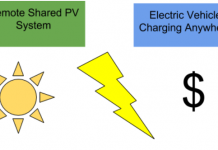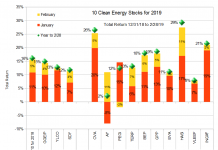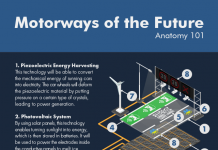I’ve written a fair bit about cars in the last little while, but a couple of important automotive-related news hit the wire again today ahead of the LA Auto Show’s opening on Friday. Firstly, following Ford’s hybrid vehicle announcement, GM’s CEO Rick Wagoner announced today that his company was going ahead with plans to roll out a plug-in hybrid SUV based on its existing Saturn Vue hybrid model. A plug-in version of the Vue would be about 45% more fuel efficient than an equal-sized truck with similar characteristics. Like Ford (NYSE:F), General Motors (NYSE:GM) has been rapidly loosing market share over the past 2 years to competitors with a more expansive offering of fuel efficient models, chief among them Toyota (NYSE:TM). While GM’s share price has rebounded nicely from the low it hit in January 2006, there is no doubt that the company’s future is still uncertain. So should investors pay any attention to this? Beyond goodwill considerations, probably not. For one thing, battery technology is not advanced enough to allow anyone to bring a competitively-priced plug-in hybrid to market any time soon. When discussing a time line for rolling this thing out, Wagoner spoke of “years��?, which is essentially the same kind of time frame the company has given itself to begin mass producing hydrogen fuel cell vehicles. Second, clean powertrain is hot, everybody’s talking about it in LA this week, and GM didn’t want to be left out of the enviro party. This is, after all, California, and all things green have been very popular there of late. My own guess (and I admit I’m no car industry expert); both GM and Ford still very much see SUVs and other types of trucks as their #1 strategic choice for generating sales, and we are not about to see some massive corporate repositioning in favor of small and/or clean cars. And here’s why. The second piece of news I wanted to discuss today is the release of the 2007 Gasoline and the American People report by Cambridge Energy Research Associates (CERA). What are CERA’s main findings? Well, as you would expect, the high price of oil has made a dent in gasoline demand in the US, which went from an annual average growth rate of 1.6% between 1990 and 2004 to a measly 0.3% in 2005, and 1% in 2006. How have sales of SUVs, minivans and light trucks been impacted? They declined for the 1st time since 1990 in 2005, and declined some more in 2006. What’s more, the report tells us, people still buying SUVs tend to favor the smaller, more fuel-efficient models within that category. Now let me qualify this, and come back to GM and Ford. The share of SUVs to total car purchases reached an all-time high in 2004 at 56%. It then declined to just under 55% in 2005 and 53% in 2006 to date. In comparison, purchases of hybrids represent only about 1.4% of all new car sales in 2006 so far. I’ll let you do the math here, but it would take very healthy growth sustained over an appreciable period of time for hybrids to even begin to catch up to SUVs. What do I think GM and Ford are thinking? Americans still very much like big trucks, and 53% is high enough to justify a healthy dose of strategic focus on the SUV segment. The price of oil? It’ll come down. Demand for SUVs has shown some elasticity and that’s also true on the upside, so when gas prices soften for a good period of time sales will bounce right back. Is that sound strategic thinking? That depends on whether you sit on the bull or the bear side of the energy price debate. I’m personally secularly bullish on fuel efficiency and clean cars, especially with all that lies on the regulatory horizon for the US auto industry. All else equal, Toyota over GM? Any day of the week! (DISCLOSURE: We do not have any position or financial interest in any of the companies mentioned in this article)








